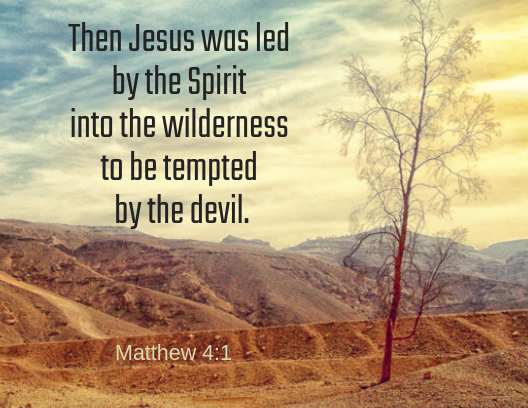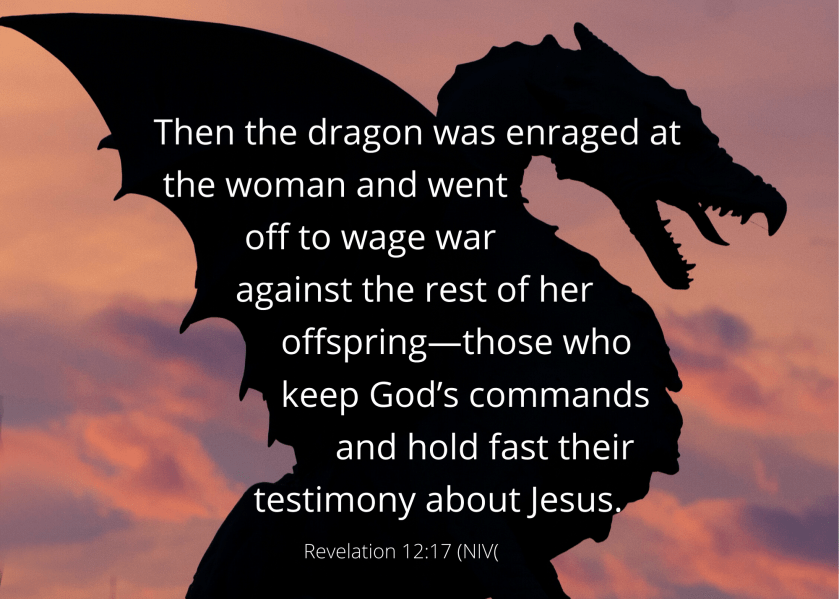
Genesis 13-14, Proverbs 8, Matthew 4
Devotion by Marcia Railton (IN)
Smooth, delicious chocolate, sometimes with crunchy nuts or gooey caramel (instead of the nutritious salad fixings abandoned in my fridge). Or really sugar in just about any form.
A “well-deserved” social media break, just for a few minutes, that turns into much longer.
On-line shopping to find just the right pair of shoes for a trip, or maybe I need pants, or what about that sweater, would that color look good on me?
Those were three temptations I caved in to just last night when I was supposed to be writing this devotion! Yikes! When my sleepy husband asked why I was so late in getting to bed, I said something like I had been busy falling into temptation. No, I hadn’t spent the late night hours murdering my neighbor, stealing from the bank on the corner, or bowing down to carved idols. But, I had said ‘Yes’ to my own selfish, meaningless, unhealthy pursuits instead of being and doing what God most desired for me – what was best for me.
Perhaps, I should not be the one writing the devotion today. I am obviously not a specialist in standing up to temptation. I need an example to follow, I need to learn from a master – Ah, yes, thank God, He DID indeed provide the perfect example who longs to be my master. He gave us His human Son Jesus. And right after the baptism of Jesus, and right before Jesus begins his years of ministry, God’s Holy Spirit led Jesus, God’s own beloved, pleasing Son, into the wilderness where he fasted for 40 days and 40 nights.
As we are looking for clues on how Jesus faced temptation so successfully, there’s a couple great ones right there. Jesus was already open to and actively being led by the Spirit. What did God’s spirit want for him? That’s what He wanted too, even when it meant willingly going into a difficult, sometimes even dangerous space.
Compare Jesus’ location and circumstance with Adam and Eve’s when they were also confronted with choices to make. The first son of God was surrounded with God’s bounty and beauty and provision in the spectacular garden. Good, healthy, God-honoring fruit literally surrounded them when they instead listened to the deception of the serpent and chose to eat of the tree that God had already clearly said “No” to. Jesus didn’t use his harsh surroundings or difficult circumstances as an excuse to be weak. Instead, he found strength in using that time to fast and pray and draw closer to God which indeed made him even stronger and better prepared to face his adversary. Don’t get so comfortable in your pleasant surroundings that you become weak and don’t recognize temptation for what it is. Don’t fear the time spent in the harsh wilderness, but use the opportunity to cling closer and closer to what really matters – the God who is always there.
After the 40 days of fasting Jesus gives us the next big answer of how he faced each one of Satan’s three temptations in the wilderness – with the very words of God His Father, each and every time. In fact, the first Scripture Jesus quotes to Satan are strong words about the sustaining power from the words of God, and our need for God’s word, from the book of Deuteronomy: “‘Man shall not live by bread alone, but by every word that comes from the mouth of God.’” (Matthew 4:4) If we try to face temptation without the power of God’s word we will be weak. Matthew 4:4 is a great verse for me to remember today when I sit down to work on tomorrow’s devotion! Here’s a few more:
For the word of God is alive and active. Sharper than any double-edged sword, it penetrates even to dividing soul and spirit, joints and marrow; it judges the thoughts and attitudes of the heart. – Hebrews 4:12
Stand firm then, with the belt of truth buckled around your waist, with the breastplate of righteousness in place, 15 and with your feet fitted with the readiness that comes from the gospel of peace. 16 In addition to all this, take up the shield of faith, with which you can extinguish all the flaming arrows of the evil one. 17 Take the helmet of salvation and the sword of the Spirit, which is the word of God. – Ephesians 6:14-17
God’s word: read it, learn it, use it – and live (better and stronger today and also for eternity).
God’s word: neglect it, forget it, try to do life your own way – and die (but first, you will likely waste a lot of time, have a lot of self-made sorrow, and miss out on doing God’s will).
His Words are not just for gaining knowledge, they are for fighting temptation, finding truth, for making strong and giving life. Don’t miss out!
Let’s review what we have seen from Jesus about successfully facing temptation: Jesus was willing to be led by the Spirit. He used his time in the wilderness well. He fasted and drew closer to God. He recognized Satan for who he was. He discerned the lies and empty promises of the deceiver and actively chose what God said and promised instead. He wanted God’s will, not his own. He knew God’s Word. He used God’s Word as a sword to do battle against untruth, temptations and the tempter. He said, “Away with you Satan!” And he was victorious!
What about you? Do you know what temptations you face regularly? What do you crave? What do you covet? What are you jealous of? What leads you astray? What do you feel guilty about? Where do you lose self-control? What good do you neglect and why? How do you waste time? What do you say ‘Yes’ to that God wanted you to say ‘No” to? And, what do you say ‘No’ to that God wanted you to say ‘Yes’ to? What is Satan whispering in your ear or in your heart? What do you worship (with your time, money, devotion, or decisions)?
Realize you have choices, decisions to make. Big ones and little ones. It’s not just about not murdering your neighbor and not bowing down to carved idols. It’s also about how you treat the gift of the miraculous body God gave you. It’s about how you choose to spend the gift of the time God gives you. It’s about how you treat the people God surrounds you with. It’s about if you choose what you want, or what God wants.
And Satan (as well as the world and marketers today) can make the bad choice, or the selfish one, or the unhealthy one, look pretty good, that’s what makes it tempting. If it looked like the garbage it is, we would gladly turn from it. Don’t be fooled by the stone that looks like bread, the impressive view, and Satan’s promises.
God gives the perfect example of His Son. Follow that example – not mine.
God gives His Word, the Scriptures – the sword to do battle with the tempter. It worked for Jesus. I need to use it better!
God gives knowledge, wisdom and discernment – ask for it and use it.
God gives the spirit of self-control – that’s the one I want.
God gives forgiveness and new beginnings.
Prayer
Dear God – I am sorry. Please forgive me of the many times I fall to temptation. Help me do better, Lord God. Help me follow the example of your Son when I am in the wilderness and also when I am in the garden. Help me go where Your Spirit is leading. Help me forsake what I want and choose instead what You want, which is indeed the best for me. Help me see garbage for what it is, and turn from it to you and your gifts, again and again. I ask for wisdom and discernment to see what is from You and what are deceptions from the deceiver. Help me use your Word well to be strong against temptation. Thank you for your Word, your forgiveness, love and mercy and a new day to work at doing Your will better. Help me use all that you give me to stand strong against temptation. Thank you for the example and sacrifice of your Son Jesus. In his name we pray to You the Almighty. Amen.
Reflection Questions
- Compare and contrast when Satan came to the garden and when he came to the wilderness? What similarities do you see? What differences? Is Satan still making visits? What does it look like?
- Consider the paragraph of questions regarding what are temptations for you. What do you see about your own temptations? What temptations do you sometimes fall to?
- Eating chocolate isn’t always a sin or temptation is it? But is it sometimes? When? Why? What makes the difference?
- What scriptures can you find (and put in your home and in your heart) to help you face your temptations better armed with the Sword of the Spirit?
- Have you ever tried fasting when facing a particularly difficult time of temptation?














